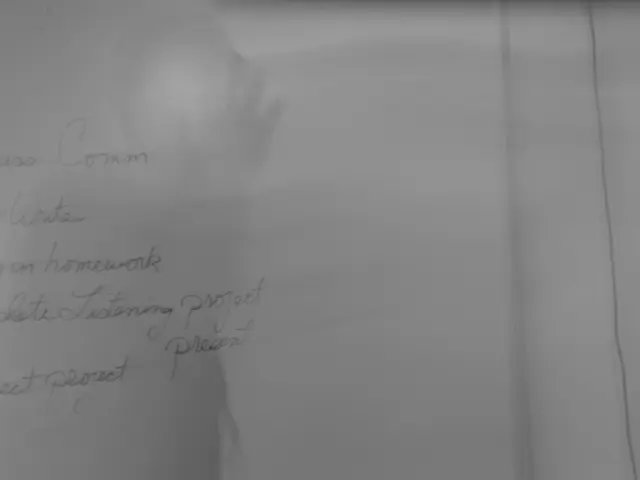A Centenarian Holocaust Survivor's Legacy: Margot Friedlaender's Lasting Impact
Artist Margot Friedländer's Timeless Communication
Margot Friedlaender, a resilient spirit and a testament to human fortitude, survived the brutal Theresienstadt concentration camp before delivering her timeless message, "be human," right until her last breath at the age of 103.
The frail yet unyielding Friedlaender stood tall, sharing her heartrending tale of loss and survival in classrooms, at memorial events, and wherever she was asked to speak. Her story was of her family, cruelly taken by the Nazis, of her own haunting ordeal in the Theresienstadt concentration camp, and most importantly, her profound plea for humanity.
Hailing from Berlin, Friedlaender was born as Bendheim but lost her family during the Nazi persecution of Jews. She was one of the few who managed to survive and was able to recount her experiences firsthand. Despite her ongoing horror, she focused on the present, warning against societal polarization and the concerning rise of right-wing ideologies in her adopted homeland.
Over the years, Margot's tireless efforts in promoting human unity earned her several distinctions. In 2011, she received the Federal Cross of Merit, and in 2023, she was awarded the inaugural "Special Prize of the International Peace Prize of Westphalia." Remarkably, she was due to receive the Grand Cross of the Federal Order of Merit from Federal President Frank-Walter Steinmeier, but the appointment was canceled at her own request.
As one of the last surviving witnesses of the Holocaust, Margot's message held an incredible urgency that still resonates today. Born on November 5, 1921, she bravely faced the atrocities of the past and stood as a beacon of hope for a better future.
Her earlier life was marred by the tragic disappearance of her brother and mother under the Nazi regime. She was saved by 16 brave individuals who helped her hide across various safe havens. A close call led to her deportation to Theresienstadt, a "limbo between life and death."
Eventually, a fortunate turn of events saved Friedlaender as the war came to an end, enabling her to move to the United States with her late husband, Adolf. Friedlaender and her husband shared an unspoken bond, united by their shared past and the haunting memories that remained hidden but always present.
In 2003, Margot returned to Berlin for the first time, spurred by invitations from Berlin's Senate and filmmaker Thomas Halaczinsky. Moved by the city once again, she made it her permanent home at the age of 80.
Her American life was initially met with skepticism, as some believed the Germans would view her as a quaint elderly woman and relieve themselves of any lingering guilt through her presence. Ignoring these sentiments, Margot embraced her homeland with open arms and never regretted her decision.
Now, Friedlaender leaves behind not only a legacy of a survivor but also a foundation dedicated to fostering freedom, democracy, and youth education. Her captivating tale will continue to inspire generations, reminding us all to recognize every individual as human, to learn from the past, and to strive for a world free from the horrors that once stirred fear and despair.
Friedlaender's memory lives on through a series of stumbling stones in Berlin that mark the tragic fates of her brother Ralph and her mother. The inscription on Margot's stone reads, "survived."
Sources: ntv.de, gut/dpa
- Holocaust Survivor
- Berlin
- World War II
- Germany
- Humanity
- Peace
- Education
- Legacy
- Judaism
- Nazis
- Concentration Camps
- Margot Friedlaender's final message, "be human," echoes in the community policy discussions, a call to promote unity and combat rising right-wing ideologies.
- The employment policy debates in the general-news should take inspiration from Margot Friedlaender's life, embodying her values of peace, education, and fostering freedom.
- The lessons learned from Margot Friedlaender's survival in the Theresienstadt camps, her relocation to the United States, and her return to Berlin can inform employment policies that cater to the needs of Holocaust survivors and refugees.
- As a beacon of hope for a better future, Margot Friedlaender's legacy serves as a testament to the resilience of the human spirit, a story that speaks volumes in employment policy discourses emphasizing compassion and understanding.








